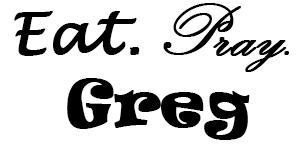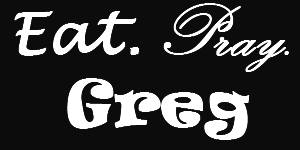When I was driving for Uber, I had a fare that left quite an impression on me. As I picked him up from the airport, he seemed flustered and tired. I asked him if he would like a water. As I handed him the bottle, he told me about his harrowing trip to the city, flight delays that turned to cancellations that turned to rebookings. He said it took him about 12 hours to get here. As he began to relax and open up, I began telling him about why I was driving and what I was doing it for. He seemed quite intrigued. By the time we got to his hotel, he had me park as he wanted to finish our conversation, with the meter running. He said that it was God’s will that I would be the one to pick him up tonight. Grabbing my shoulder from the back seat, he said he wanted to pray for me. We bowed our heads and he proceeded to thank the Lord for his delays so that he could have a chance to speak with me before my trip. He prayed for God to open my eyes to the lands that did not have the love of Jesus Christ in their hearts. He then gave me an incredibly generous tip.
However, it was not until I strolled the grounds of Tuel Sleng, a creeping numbness overtaking me, that I realized the words of my fare from what seemed like a lifetime ago. As I looked upon a bloodied metal bed frame that had been electrified for torture in a classroom with faint chalk lessons still written on the blackboard, I asked myself “How could people do this?” Falling deeper into my malaise, I moved through the ersatz cells made of brick that would barely allow chained prisoners to lay on their backs. Diagrams of the intricate yet simple ways screaming prisoners were tortured marked the walls and posts of the compound.
The feeling of odium was only magnified when I got to Choeng Ek. Walking in these Killing Fields, people were still finding bones and tattered clothes in pits, as if the Earth were regurgitating with shame for being made an accomplice to this slaughter. The sheer variety of ways that the poorest of the poor can kill their “class enemies” was astounding. Imagine a blade of saw grass nearly decapitating you. Or a rifle ramrod being shoved into your skull. Or being bludgeoned by a hammer, tire iron, or rock then thrown into a pit with the other lost souls that came before you, only to be buried by the ones to come after. Imagine knowing that if you were lucky enough to escape, that it happened to someone in your family. Or all of your family.
But the worst of it was the Killing Tree. It was here where young children we grabbed by their legs and swung against a very sturdy tree until their brain matter covered it. Their bodies thrown at the feet of their only witness, the child’s naked, raped mother before too she was executed. I was just about to leave, having my fill of blood, anger and sorrow for the day, but knew that I needed to have one final look. In the afternoon sun, unnerving the fellow travelers around me, I memorized every part of that tree. I never wanted to forget it. I bowed my head.
You would think that the blood of a quarter of their population would be enough, like the story of Passover, to spare the people of Cambodia from further horror.
But no.
From sex tourism and trafficking; often of children, utter poverty, and the ubiquity of landmines, the blood and the tears continue to fall here.
But you would never know it. In the shadow of one of the Wonders of the World that adorns their flag, everyone I met was gracious and kind: in my accommodations, on the street, in shops, and in bars and restaurants. They wanted to talk. They wanted to share. They were honored I would visit them. Every day I was asked by the front desk of my hostels how my day was, how I was doing, and what I had seen. My drivers were never hesitant to start a conversation. My guides loved answering questions, even difficult ones.
On my walk through Tuel Sleng at the very end of the tour, as I sat on a provided bench, the words of a survivor rung in my ears. She said that every person is born like a clear cup of water. It is the world that dumps dirt and sediment into our cups in the form of hate and violence. But it is our calling as human beings, as the voice quietly but resolutely admonished, to strive to become clear once more.
They have every reason to be bitter, to hate the world and everyone in it. Perhaps only those that know true suffering uniquely weep all of their tears while laughing all of their laughter. There is love, in spite of everything, in their hearts.


No comment yet, add your voice below!